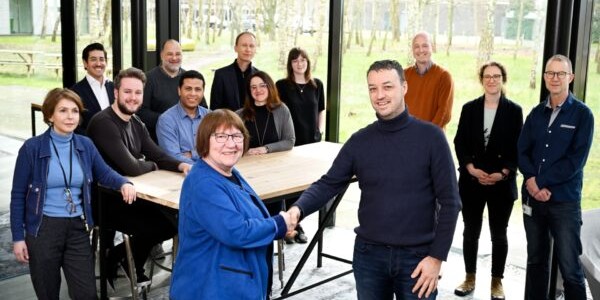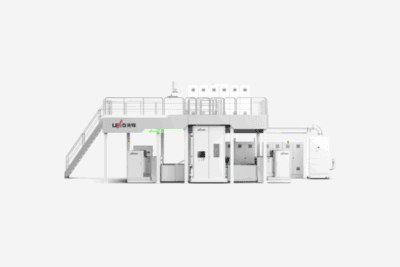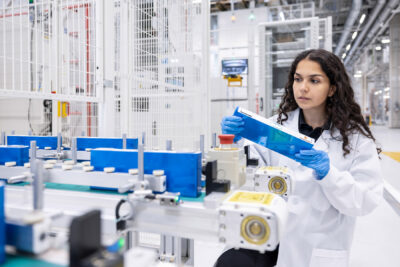Dutch-German research project to develop batteries
The Centre for Solar Energy and Hydrogen Research Baden-Württemberg (ZSW) in Germany and the Dutch institute TNO of the Holst Centre have agreed to jointly develop lithium-ion batteries for the European automotive industry.
According to the ZSW, the cross-border research project will initially focus on improving existing lithium-ion batteries. The starting point of ZSW and TNO for improving battery performance is the stabilisation of the interfaces in the lithium-ion battery by means of atomic layer deposition (ALD). This will be followed by a second phase in which the project will investigate next-generation batteries, such as the sodium-ion battery.
The project, which is scheduled to run until the end of February next year, is intended as the first step in a long-term collaboration between the two research and development centres.
The Dutch centre in Eindhoven brings more than 15 years of experience with the demanding ADL technology to the partnership. TNO is closely linked to equipment manufacturers in the Noord-Brabant region. ZSW contributes extensive expertise in the fields of materials research and integration in electrodes and cells, as well as strong ties with the German automotive industry. For detailed material characterisation, the duo is also getting support from the Natural and Medical Sciences Institute at the University of Tübingen (NMI).
The research work is to be application-oriented with local partners from battery production and the automotive industry. The Dutch province of Noord-Brabant and the state of Baden-Württemberg are providing about 3.4 million euros for this cross-border research project.
In the long term, a cross-border battery network is to be established on the basis of the project, in which both institutions will involve their partners from the battery production value chain in the Dutch province of Noord-Brabant and Germany.
According to Margret Wohlfahrt-Mehrens, head of electrochemical materials research at ZSW, now is the time to build strong cross-border relationships and cooperation within the countries of the European Union: “The pace of development for lithium-ion batteries needs to be further accelerated to meet the European Union’s CO2 emission targets. This collaboration combines technology development on the Dutch side with the understanding of battery materials and electrodes in Baden-Württemberg.”
“Our ALD single-layer deposition technology significantly improves the stability of current and next-generation lithium-ion batteries, which will enable shorter charging times, for example,” says Ton van Mol, Managing Director of TNO of the Holst Centre. He adds that it can be seamlessly integrated into existing gigafactories and used in the mass production of battery cells associated with electric vehicles.
“This collaboration is a great first step in bringing the Dutch and German battery technology ecosystems closer together,” explains Ton van Hol. “With the cross-border development and application of new (manufacturing) technologies in both the province of Noord Brabant and Baden-Württemberg, the project will create the conditions for companies from both regions to enable and upgrade their commitment to the energy transition,” he surmises.
energie.themendesk.net (in German)





0 Comments